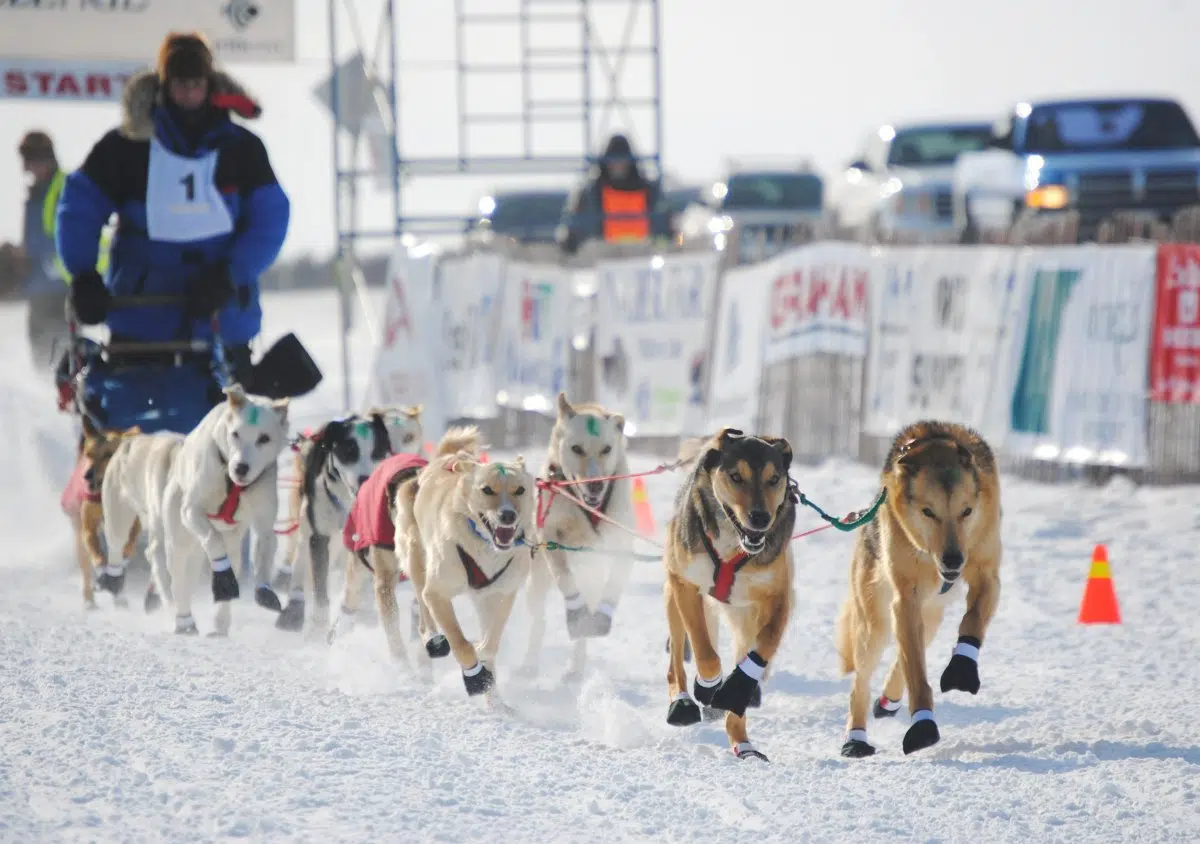
Sled dog race jumps into the game
“Three-two-one! And they’re off!”
Such was heard coming from the 2013 Canadian Challenge start line every two minutes and as sled dog teams took off. The race which began at Red Wing School north of Prince Albert today at 12 noon sharp, included 15 mushers and their dogs.
The race, comprised of 12-dog, 8-dog, Junior and Open race mushers, is an annual event that brings people from as far as Australia and as close as Christopher Lake right here in Saskatchewan.
“We are unique in running the longest running race in western Canada and it’s in Prince Albert, Sask. and I’m proud to be with it,” said Bernie Zintel, treasurer for the Canadian Challenge.


